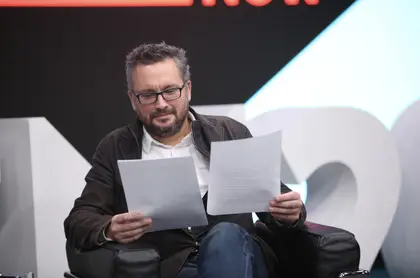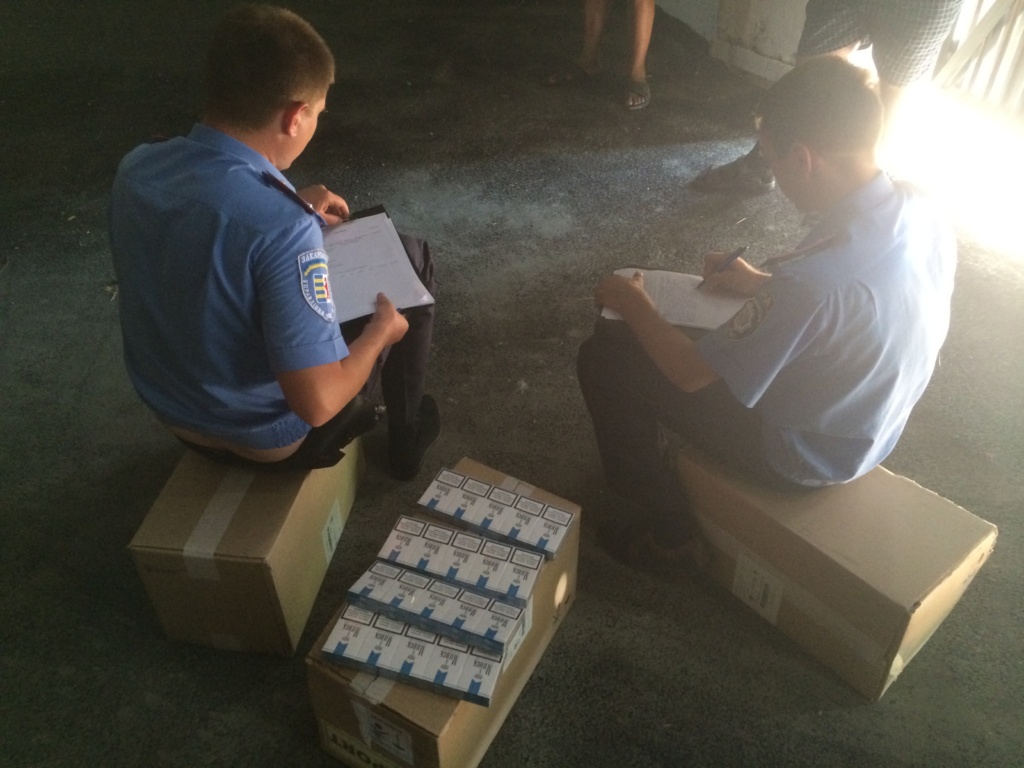The last thing I remember when trying to fall asleep on the night of Feb. 23 – the eve of Russia’s full-scale invasion of Ukraine – was the sound of Russian propaganda trumpets blowing as loud as ever.
Russian news outlet RT still denied any plans for a Russian attack.
JOIN US ON TELEGRAM
Follow our coverage of the war on the @Kyivpost_official.
But then came the first blow. And the second.
Within a day of the invasion, I was in Germany answering questions from a local newspaper on all kinds of topics, including corruption.
The conversation was predictable.
The extent of decay suffered by the Ukrainian state following years of successive and corrupt governments, along with its shadow economy, are barely escapable. The role and influence of Russian hybrid tactics are also there to see.
“We are on the brink of a world war,” I told German reporters.
One thing was unquestionable. The very existence of my beloved country was at stake, and the odds did not seem in our favor.
The new threat washed over articles such as one in the The Financial Times quoting the communique of Europol on alleged threats to European security. It said that Ukraine posed a threat as a weapons smuggling enclave.
To some extent it was true. Years ago, I published the results of my own investigation into the corrupt activities of backdoor arms dealers in the Ukrainian military. That was during a time when old soviet weaponry was being systematically stolen from post-Soviet military bases. But who, if not Russia, was responsible for the most famous gun-smuggling schemes?

Latest on Russia’s Intransigence to End War Against Ukraine
Corruption and lack of trust can be fatal
In Ukraine’s case, such reports all served to create the impression of a failed state – that of yet another gangster’s enclave on the frontier of the civilized world.
But first impressions proved to be misguided, as the Ukrainian nation since became a real border guard for the European Union (EU).
So what became of the old tycoons and the new gangsters of the hybrid war – the kings from the Epoque of the “gray zone.”
Are they still walking the Earth as well-established citizens with their hands in the pockets of the new decision-makers? Are the new rules of the game transparent and fair?
And can we indeed speak about the rules of the game in a market so torn and depressed by war and blackouts that one can barely plan the next financial week, let alone strategic investments?
Lords of the shadows
The first professional meeting I had in Germany weeks after leaving Ukraine in 2016 at gunpoint was with a former law-enforcement officer of Dutch origin, now employed by a big tobacco corporation. The business had hired him to investigate the smuggling of counterfeit cigarettes from the occupied Donetsk region of Ukraine, later found in the heart of the EU. That contraband had created a gap in the European finances similar to the annual aid budget given by the EU to poor countries.
According to a pre-war study by KPMG, the budget losses of EU countries due to cigarette smuggling amounted to 12.5 billion euros per annum.
Poland, Belarus and Ukraine top the list of illegal exporters, with imports to EU states from these countries amounting to market shares of 13 percent, 10 percent and 7 percent, respectively.
Though counterfeit cigarette smuggling is just the tip of the iceberg, they are an indication of much more complicated trafficking schemes.
A few years ago, I traveled to the Zakarpattia region of Ukraine, bordering Romania, Hungary, and Poland.
At that time, tensions between the smuggling kings resulted in a skirmish between local gangsters and part of the military volunteer battalion that provided security to the former head of the presidential administration, a key smuggling baron of the region.
According to information from a senior police officer, a fight occurred in Mukachevo after unsuccessful negotiations between the two smuggling kings who attempted to discuss illegal export quotas of various goods from Ukraine to Hungary and Poland.
According to the information of then governor of Zakarpattia region, Hennadiy Moskal, large shipments of counterfeit cigarettes from occupied Donetsk were traced in the region on their way to the EU.
These shipments stemmed from the Donetsk and Luhansk regions – parts of Ukraine occupied by Russia since 2014, as part of a business scheme involving enterprises controlled by the Russian Orthodox Church.
Is that still the name of the game now, after all these months of pain and loss? I highly doubt that, but one important player remains almost intact.
Influence of the Russian Orthodox Church
The Russian Orthodox Church, according to a few sources in the so-called Russian-controlled Luhansk People’s Republic (LPR), was responsible for bringing cigarette filters and paper to a factory that was once the main supplier of counterfeit cigarettes.
This Church, a strange political and military institution promoting war, has often served as a hiding place for Russian fighters on Ukrainian soil. It has not only shown itself to be a political player, but also a business empire that would not surprise historians studying the figure of Jacques de Mollet and his Templars.
Is that still the case now?
Is it just a casual business for Patriarch Kirill, or a delicately handled scheme to provide the Russian Federal Security Service (FSB) and its cronies with additional revenues to feed their ambitions to become local tycoons?
Is the Russian church still powerful in Ukraine?
On Nov. 22, Ukraine’s security service, the SBU, raided the Kyivan-Pecherska Lavra in search of weapons and separatists.
Weren’t they eight years too late?
Out of the ashes
The change we face these days is drastic.
For the first time in decades, dozens of corrupt Russian-controlled scammers have faced, if not a war tribunal as many expected, oblivion and total deprivation from the political influence they once boasted of.
But what will the new Ukraine look like upon emerging from the ashes?
Will there be a new order?
Neighboring Moldova, now suffering its own blackouts after Russian artillery strikes on Ukraine, faces possible hybrid warfare from Russia and has much to add to this equation.
The country bordering Ukraine has a similar history of a shadow economy.
Moscow has infiltrated its break-away region of Transnistria with dozens of agents. It still holds what is famous for being the biggest Russian arms depot outside Russia.
With a history of gangs affiliated with Ukrainians, is it a new threat to regional and European security?
War is always an opportunity for the corrupt to exploit the opportunities and loopholes it creates.
That has always been the case, starting from notorious weapons smuggler Viktor Bout. But is it still the case?
International aid is fortunately pouring into Ukraine at a time of great difficulty – but is its delivery and distribution properly monitored and accounted for?
Reports allege corruption on a massive scale in Odesa’s ports at a time when the export of grain is a matter of critical international attention.
And, having my own experience as a volunteer fighter at the front earlier this year, I’m well aware that there are problems that seldom, for understandable reasons, get mentioned in the press. That was also a reason for my forced exile six years ago, under Petro Poroshenko’s government.
These various questions loom large from the darkness of a war-torn country that we desperately want to save and study further.
It’s an exciting and terrible job of being a journalist during times of war.
It’s what I’ve been doing for decades – returning from the battlefield into the seemingly peaceful realm of Ukrainian politics.
But journalism, as we know is but another frontline.
The views expressed are the author’s and not necessarily of Kyiv Post.
You can also highlight the text and press Ctrl + Enter











